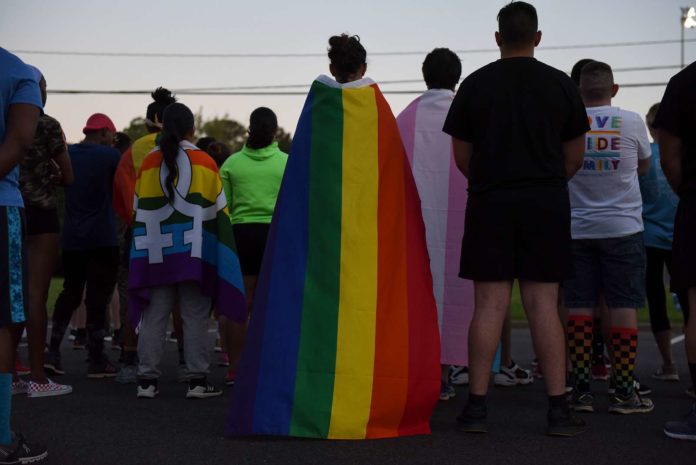
In 2013, Russia passed the “Gay Propaganda” law, which aims to instill “traditional values” in children by censoring accessible information about the LGBTQ+ community, gender identity, and queer representation. This ban has impacted the information available on television, press, and the internet, and has prevented pride marches from taking place as well. In July, Russian lawmakers proposed extending the propaganda law by the end of the year to include adults. Lawmakers have stated that under this extension, citizens who are seen as “promoting homosexuality” could be subject to a fine.
Alexander Khinshtein, the head of the State Duma’s government information committee, stated on Telegram that this would “greatly extend the ban on such propaganda regardless of the age of the audience (offline, in the media, on the internet, social networks, and online cinemas).”
Extending this law to adults will subject the LGBTQ+ community to even greater risk, activists argue, due to increased discrimination and capacity for violence. The European Court of Human Rights ruled in 2017 that the “Gay Propaganda” law “does not serve the aim of the protection of morals… is likely to be counterproductive in achieving the aims of the protection of health and rights of others… [and] reinforces prejudice.” However, this has meant little to Russia’s policymakers. After walking away from the Council of Europe human rights watchdog earlier this year in the wake of the war on Ukraine, parliamentary speaker Vyacheslav Volodin has stated that it is now time to focus on restricting the encouragement of “non-traditional values.”
These so-called “non-traditional values” appear to be anything disapproved of by the Russian Orthodox Church, which remains against same-sex marriage and trans/queer gender identities (despite Russia decriminalizing homosexuality in 1993), advocates rejecting “Western culture,” and continues to play a leading role in Russia’s cultural, social, and political condition. President Vladimir Putin has recently closely aligned with the Church, expressing, along with Volodin, that expanding the ban would continue to defend Russian values from “ideals promoted by the West.”
Many activists have concluded that Putin is legalizing expanded punishments for queer visibility in order to consolidate his Church ties. Al Jazeera hypothesizes that Putin believes closer relations with the Orthodox Church may prevent further societal instability from erupting as Russia wars on Ukraine.
Whether a ploy to maintain domestic stability or not, strengthening Russian social conservatism via expanding the criminalization of homosexuality puts the Russian LGBTQ+ community at risk. Combined with a lack of legal protections, mass censorship of queer representation, and medical discrimination based on gender identity, it is no hyperbole to say that Russian LGBTQ+ people are under attack by their own government.








